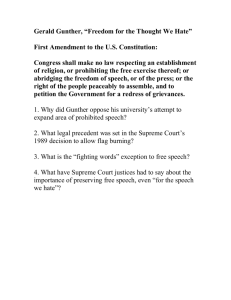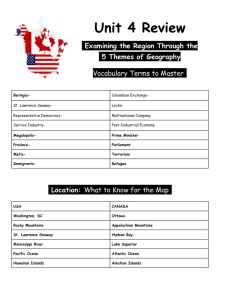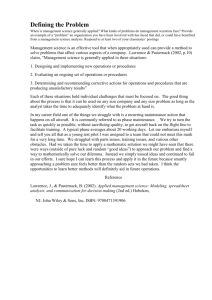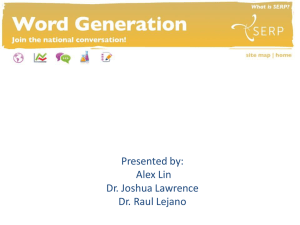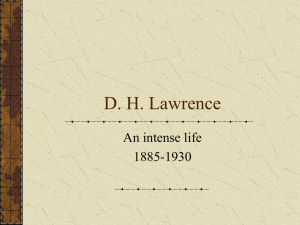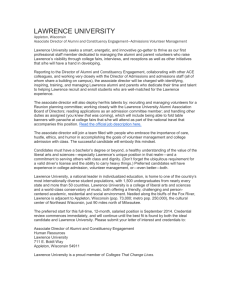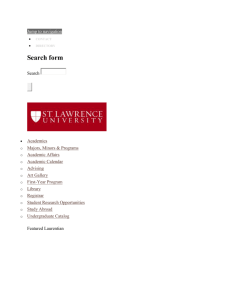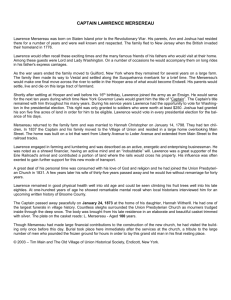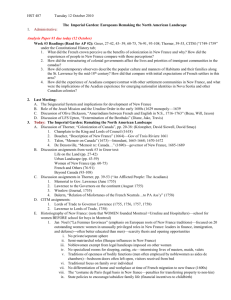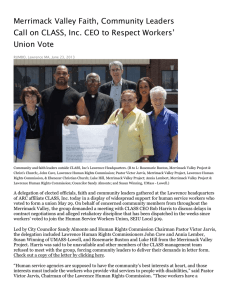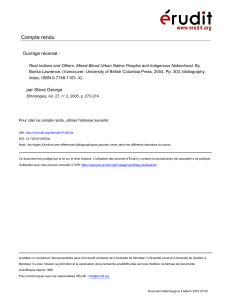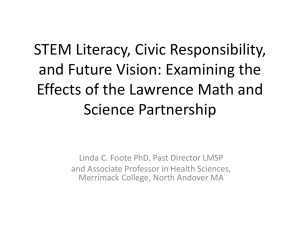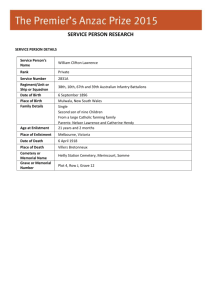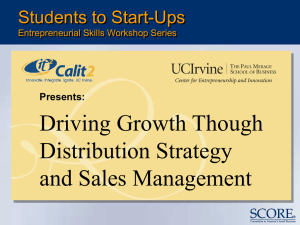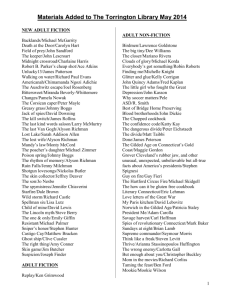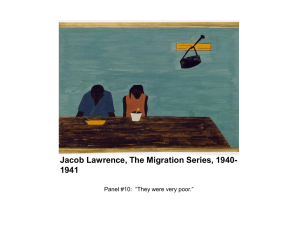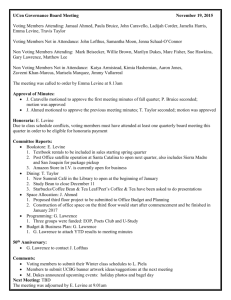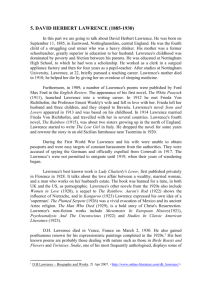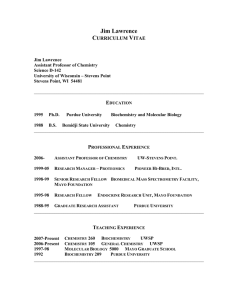Designing Healthy Communities: Lawrence Zoning and Public Health
advertisement
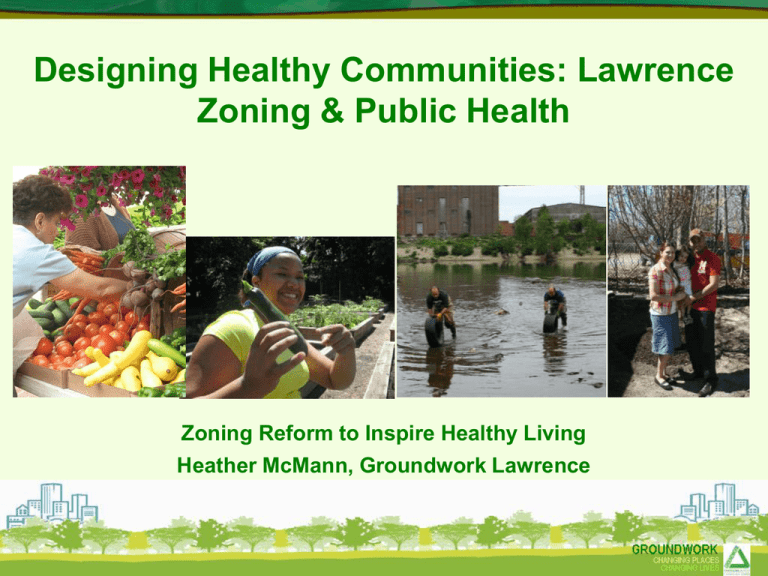
Designing Healthy Communities: Lawrence Zoning & Public Health Zoning Reform to Inspire Healthy Living Heather McMann, Groundwork Lawrence Groundwork Lawrence • For people - creating opportunities for people to learn new skills and take local action • For places - creating better, safer and healthier neighborhoods • For prosperity - helping business and individuals fulfill their potential Lawrence in 1850 Lawrence Now Statistics • • • • • • • • • • One of the poorest & most heavily Latino cities in NE Population 76,000 in 7 square miles 25%+ of families below poverty line Low Homeownership & High Unemployment Rates High rates of foreclosure 37% of residents hold HS degree Young population (~30% under age 24) Diet & lifestyle-related disease rates soaring Highest rates of youth obesity in MA Food Desert: • 1 Grocery Store, 100+ Corner Stores • Fast Food Restaurants Healthy Food Access Dr. Nina Scarito Park • 1850s - Small mill built on the site, including several raceways running through the property • 1940s: - Site redeveloped into a commercial laundry • Late 1980s - Laundry buildings demolished, leaving the site vacant • 2001 - Neighborhood Summit identified site for a neighborhood park • 2006 - Completed remediation & construction, funding from EPA Brownfields, MA EOEEA, City of Lawrence & Bank of America Dr. Nina Scarito Park Manchester Street Park • Former incinerator • 1990s - Community succeeded in closing the incinerator • 2006 - Envisioned as a park • 2009 – Ribbon-cutting ceremony • 2010 & 2011 – 2 National Awards Manchester Street Park Spruce St. Vacant Lots Spruce St. Community Garden The Spicket River Greenway Walkable Communities and Health Walking is beneficial to people's health, to community vitality, and for the environment. Improves community interaction as people are more likely to talk with neighbors and shop in local stores when they are walking through a community. Provides easy, inexpensive and low-impact exercise that can improve the overall health of community residents. Walking instead of driving protects environmental quality. Reducing vehicular emissions benefits plants, watersheds and the health of wildlife and people alike. Walkable Communities and Economic Benefits Housing Values are Higher Attract "New Economy" Workers Are becoming a Business Relocation Alternative Reduce Commuting Costs Cost the Taxpayer Less Attracts Tourists Can Capture an Emerging "Lifestyle" Retail Market Source: http://www.uwex.edu/ces/cced/downtowns/ltb/lets/0703ltb.html Lesson learned: Challenges are Opportunities Challenges • • • • • • • No Master Plan Brownfields/Vacant lots Illegal dumping Flooding Public Perception Limited Access to Healthy Food Limited Regional Cooperation Opportunities • • • • • • Open Space Plan Dense, Walkable City Mixed-Use Neighborhoods Active Transportation Open Spaces for Recreation & Exercise Improved Environment (air, water, soil) Connecting Public Health, Zoning & Community Development Heather McMann, Groundwork Lawrence www.groundworklawrence.org hmcmann@groundworklawrence.org (978) 974-0770 x7009
